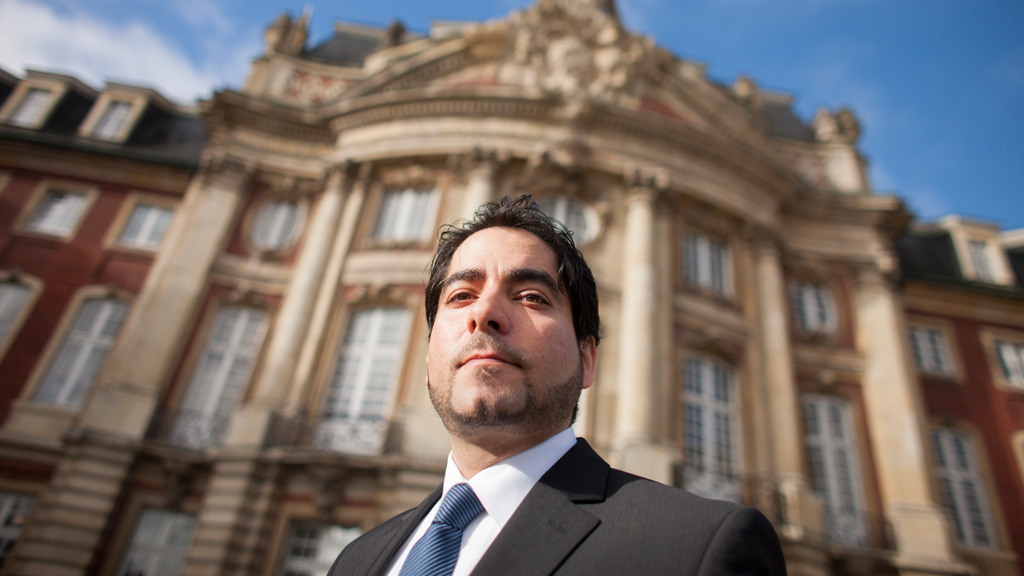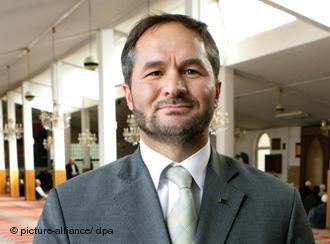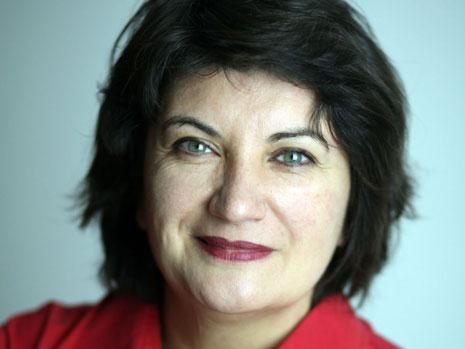A conflict of many layers

It would have been a good opportunity to delve into content-related questions. After all, the theme of the conference provided a fitting context: "Islam in Germany – Challenges in Establishing an Islamic Theology" was the title of an event to which the Schura Hamburg and the Islamic Centre Hamburg invited guests last Sunday week.
The panel was to include Professor Mouhanad Khorchide and representatives of the Islamic associations in Germany. However, the officials from the associations failed to show up because they did not want to appear on the same podium as Khorchide. This demonstrative absence once more shows how complicated the Khorchide case has become.
Even though the dispute about the director of the Centre for Islamic Theology at the University of Münster is being played out primarily in the media, outsiders find it hard to find out what the dispute is actually about.
Controversial interpretation of Islam
Superficially, Khorchide's interpretation of Islam is at issue. The criticism launched his way by the associations' officials has culminated in serious allegations that Khorchide's interpretation of the Koran violates Muslim theological principles and that he is trying to ingratiate himself with the majority society.

In addition, not only are aspersions being cast on Khorchide's theological competence and academic credentials, his scholarly approach is also coming under fire. "To start with, we need to develop a good, solid theology at the universities. On this sound basis, opinions can then collide", said Bekir Alboga of the DITIB, one of the largest Muslim organisations in Germany, in a recent television interview.
Alboga views Khorchide not as a theologian but as a sociologist. This is significant because Alboga is also the current spokesman for the Coordination Council of Muslims in Germany, an umbrella group of Muslim associations in Germany set up so that Muslims can speak with one voice to the German government, as the Catholic and Protestant Churches already do there.
But why have these organisations waited until now to challenge Khorchide's qualifications, four years after his appointment to a German university? Why are they now suddenly objecting to Khorchide's theological teachings, more than a year after the publication of his book "Islam ist Barmherzigkeit" (Islam Is Compassion)? And above all, why are the academics in the Islamic centres remaining silent rather than defending their colleague against the accusations of the Coordination Council of Muslims in Germany, leaving this task to Christian theologians instead?
Answers to these questions are only ventured, if at all, in whispers. While some academics simply do not respond at all to inquiries, others will only comment if their anonymity is guaranteed. For some of them, the fear of falling out of favour with the associations is simply too great.
The majority of university lecturers in this field only have temporary positions and do not want to put their academic careers at risk by taking a stand on the Khorchide issue. But word has it that many are also remaining silent "because they themselves are not theologians of Islam". A young scholar sums it up succinctly: "People who live in glass houses shouldn't throw stones."
There are several aspects to the Khorchide dispute. There are the Islamic associations, which want to demonstrate their political weight at the expense of the professor. "The associations have succumbed to megalomania and want to be treated like the Catholic Church", explains the young academic, adding that politicians have thus far only encouraged them by granting them more importance than they deserve.
Although association representatives have claimed that Khorchide's Koran exegesis is contrary to the views of Muslims in Germany, this is not really the case. "There are many, many Muslims who welcome Khorchide's image of a compassionate God," says the anonymous academic.
Not a revolutionary approach
Academics have often said that Khorchide's approach is not really as revolutionary as mainstream society makes it out to be and that it is, in fact, also espoused by Islamic theologians such as Ömer Özsoy at the University of Frankfurt. The difference is, however, that Özsoy does not have a high media profile.
Even those who do not take issue with his theology think that Khorchide has overdone it with his media presence. His high profile in the media and his interpretation of the Koran are a thorn in the side for some.
"Whether you are an employee of a university in Germany or anywhere else in the world, you have to conduct yourself like a scholar, not like a media star. Absolute requirements for teaching Islamic theology are the corresponding qualifications – such as a completed degree, doctorate and post-doc work. Scholars with a solid education are notable for their modesty", explains Ibrahim Salama, research associate at the Institute for Islamic Theology at the University of Osnabrück, summing up in one sentence what Khorchide's critics at the centres of Islamic theology think, but do not say in public. Salama is one of the few to speak out.

The fact that Christian theologians have come out in support of Khorchide only confirms the assumption held by Salama and other critics that Khorchide is trying to curry favour with Christians.
Khorchide has now said that people are conspiring against him. He was recently accused of plagiarism by Abdel-Hakim Ourgh, director of studies in Islamic Theology and Religious Education at the University of Education in Freiburg. Ourgh claimed that Khorchide has appropriated the ideas of the Syrian author Muhammad Sharour.
The Heidelberg scholar of Islam and Sharour expert Thomas Amberg promptly responded to these allegations, asserting that, in view of the diffuse and unconvincing arguments, the accusation could be judged as "nothing but ill will". "Substantive resemblances between Khorchide and Sharour consist solely of the fact that their concerns are similar." Khorchide is no longer willing to put up with this defamation of character and has announced that he will take legal action.
Power struggle on several levels
But back to the opening question: what is the Khorchide case really all about? Is it about the professor's theological stance or his academic position?
The front line in the struggle for power runs not only between the Islamic associations and the University of Münster, but also between the University of Münster and the University of Osnabrück. It is no secret that there is no love lost between the directors of the universities' respective Islamic institutes, which only constitute a single, unified centre on the surface.
Professor Bülent Ucar in Osnabrück endorses a conservative Islamic theology and thus one more congenial to the associations. Even though he has withheld commentary on the Khorchide issue thus far, his institute invited Aiman Mazyek of the Central Council of Muslims in mid-January to speak on the "Expectations of Muslim Religious Communities Regarding an Islamic Theology in Germany", which can be interpreted as being targeted against Khorchide.
The management of the University of Münster is backing Khorchide. It has said that it stands "unequivocally" behind Professor Khorchide and that all accusations and criticisms of him are untenable. It has also pointed out that as director of the institute, Khorchide is only doing his job by conducting a theological debate.
Canan Topçu
© Qantara.de 2014
Translated from the German by Jennifer Taylor
Editor: Aingeal Flanagan/Qantara.de
